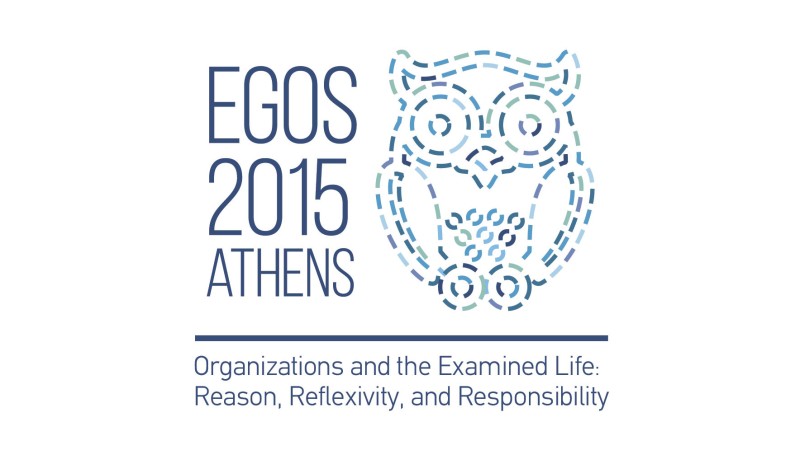Sub-theme 40: Living the Critical Life: Unreason, Nonreflection and Irresponsibility
Call for Papers
In 'The Act of Killing' (2012), a documentary on the mass killing of more than a million suspected communists
in Indonesia during the 1965–66 period, Joshua Oppenheimer follows several former members of death squads, gangsters who were
never punished for their crimes and are now considered as local heroes, as they proudly and openly talk about their slaughter.
The film examines the reality of politically organized and legitimized mass-murder as well as the re-enactment of the killings
as the killers stage their crimes in front of the camera. Unrepentant, laughing and boasting about the efficiency of their
methods of slaughter, they are comfortable in being protected by the paramilitary organization that emerged from the death
squads to influence government ministers. The film progressively documents their slowly shifting perception as they come to
realize through these reenacting and then watching back the gory scenes that they have inspired, the possible fissures in
their fantasized system of self-justification.
Although for Socrates the unexamined life was not worth living,
this wasn't the case for the killers. But we have no way of knowing whether their changing awareness was authentic, or a tactical
performance – or whether reflexivity was possible at all, because their experiences were so mediated and refracted, politically
and institutionally. Many other institutionalized power systems can foreclose the possibility of evaluation, by hindering
any initiatives of critical reflection, as attempts to intervene by reframing knowledge are resisted, and even suppressed.
Consequently, otherwise ethical actors may find themselves engaged in dubious activities.
This sub-theme aims
to interrogate the possibilities of critical reason and reflexivity leading to genuine organizational and institutional change
– and even its potential for achieving self-awareness and emancipation. We invite contributions that consider the limitations
of critical (self-)examination and reflexivity in contemporary organizations, where such processes are often performed from
a predetermined or specific position, maintained by structures of domination, framed by institutional formations, embedded
in power/knowledge relations, or articulated in terms of conformance to pre-given criteria.
We wish to subvert
three core concepts: reason, reflexivity and responsibility. Rather than taking them as virtues to be assumed, we ask how
are they actively fostered in organizations and how might they be deployed to create a progressive institutional agenda? What
are the conditions of possibility – or the realizations of impossibility – of reason, reflexivity and responsibility? Might
progressive ethical outcomes be gained by pursuing paralogical strategies of unreason, nonreflection and irresponsibility?
We seek contributions that attempt to understand how:
- Mobilizing the concept of unreason (or non-reason and irrationality) can invite us to extend the limits of reason, moving away rationality towards imagination;
- Engaging in non-reflection can challenge the process of mirroring the gaze of ongoing power relations that perpetuate existing forms of accountability and discipline. The destabilizing concept of refraction can subvert and resist the assumptions of clear accountability;
- Embracing irresponsibility confronts the idea that (social) responsibility remains conservative in exercise and possibly a tool of power, rarely reflecting mutuality in relations with the other. Revising (ir)responsibility questions ethics, morality, emancipation, justice and creativity in intra and extra organizational contexts.
We are also interested in attracting papers that:
- draw attention to the absurdities of the existing [theo]logical functioning of organizations and corporations, engage with (rational) power as (ecstatic) drug, or examine rationalistic corporate rhetorics that unintentionally expose the dark underbelly of capitalism;
- challenge the illusions of conscious capitalism (Filke & Buzzanell, 2013), and consciousness in capitalism, by reflecting its essentially monstrous nature (McNally, 2011);
- engage with Zizek and Lacanian critiques of the unacknowledged operations of fantasy behind masks of rationality;
- promote acts of minor dissent, such as those by comedian Mark Thomas and the Yes Men playing on the absurd to expose the ills and excesses of corporations;
- take up Parker's (2003) argument that neither critical theory nor business ethics can escape the historical conditions of their possibility;
- unravel the 'cultural grammar' of reflexivity (Ailen, 2011), and its embeddedness in power relations.
References
- The Act of Killing (2012): Documentary. Directed by Joshua Oppenheimer, Anonymous & Christine Glynn. Det Danske Filminstitut (Denmark), DogWood Pictures (UK) & Drafthouse Films (USA).
- Ailen, G. (2011): "Mapping the cultural grammar of reflexivity: the case of the Enron scandal." Economy and Society, 40 (1), 141–166.
- Fike, J.P., Buzzanell, P.M. (2013): "The ethics of conscious capitalism: Wicked problems in leading change and changing leaders." Human Relations, 66 (12), 1619–1643.
- McNally, D. (2011): Monsters of the Market: Zombies, Vampires and Global Capitalism. Chicago: Haymarket.
- Parker, M. (2003): "Business, ethics and business ethics: Critical theory and negative dialectics." In: M. Alvesson & H. Willmott (eds.): Studying Management Critically. London: SAGE Publications, pp. 197–219.


